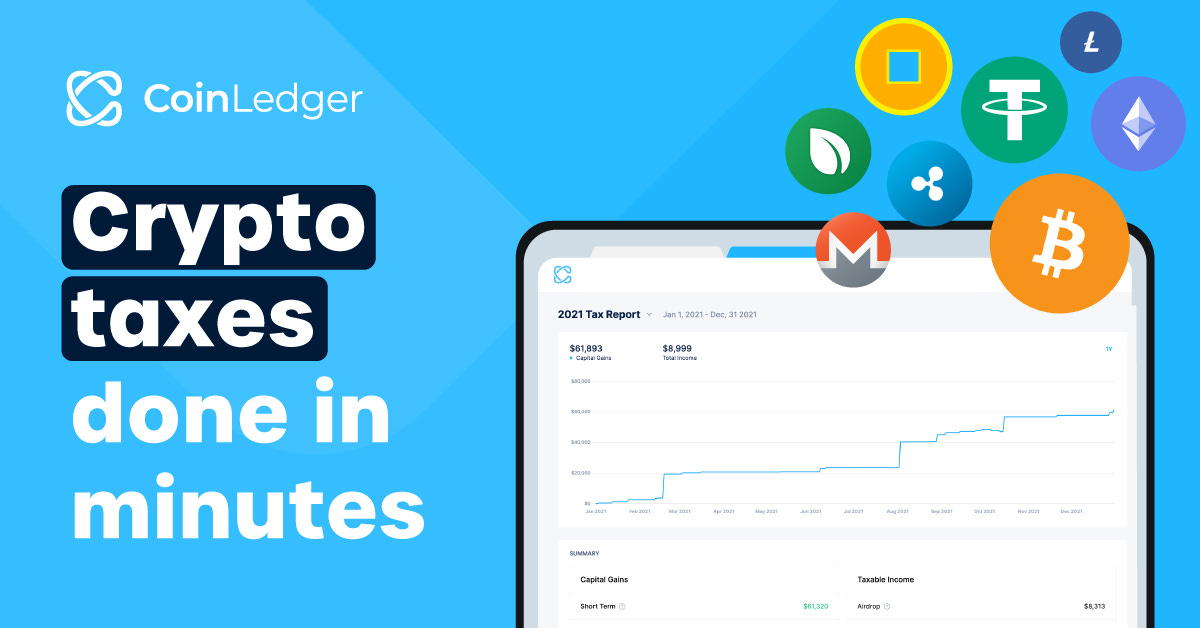If you've ever checked your crypto wallet and discovered a handful of new tokens magically appear — congrats! You’ve just experienced a crypto airdrop. And if you’ve held a coin through a major blockchain split, you might’ve received duplicate tokens thanks to a hard fork.
But before you celebrate your “free money,” there’s a hidden catch most crypto users overlook: taxes.
In this post, we’ll break down the key takeaways from our recent CryptoPhilly podcast episode: “Crypto Airdrops and Forks: Tax Consequences Explained.” Whether you're a casual trader or DeFi degenerate, understanding the tax side of these events can save you from serious trouble later on.
What Are Crypto Airdrops and Forks?
Airdrops are distributions of tokens sent to wallets as part of promotional campaigns, loyalty rewards, or incentives for holding a specific asset. Think of it like blockchain marketing.
Hard forks, on the other hand, occur when a blockchain splits into two separate versions — often due to disagreements among developers or communities. If you held the original coin, you might receive an equivalent amount of the new token on the forked chain.
In both scenarios, you receive tokens without paying for them — but that doesn’t mean they’re tax-free.
Tax Rule #1: “Dominion and Control” Triggers Income
The IRS considers airdropped and forked coins as taxable income when you gain control of them — meaning you can transfer, sell, or use them.
Example:
You receive 1,000 airdropped tokens on March 15, worth $0.50 each at the time. That’s $500 of ordinary income — even if you don’t sell them right away.
The same applies to forks. If you’re granted access to the new forked coin and it’s immediately tradable, its fair market value becomes income the moment you can use it.
Tax Rule #2: Selling Creates Capital Gains (or Losses)
If you later sell those airdropped or forked tokens, you’ll face a second layer of taxation: capital gains or losses.
Your cost basis is the value of the token at the time you received it.
If the price goes up by the time you sell, you owe tax on the gain.
If the price drops, you may be able to deduct a capital loss.
Example:
Airdropped token value on receipt = $1
Sold 3 months later for $3
Your capital gain = $2 per token (short-term capital gain)
This means the same token can trigger two separate taxes — once as income, and again as a gain or loss when sold.
What If You Didn’t Claim the Tokens?
This is a gray area, but the IRS has clarified:
If you don’t have control — meaning you can’t access, move, or use the token — it’s not taxable (yet).
So if:
The airdrop went to a wallet you don’t control,
You skipped the manual claim process,
Or the network was still under development and untradeable,
Then you likely don’t owe taxes until you take possession and can use the tokens.
Still, once those tokens land in your accessible wallet and have value? They’re fair game for the IRS.
Best Practices for Managing Airdrop and Fork Taxes
Here’s how to stay compliant and protect your future self from tax headaches:
✅ Track everything:
Use crypto tax software like Koinly, or CoinTracker to log the date, time, and value of each airdrop or fork.
✅ Know your cost basis:
Always record the USD value at the time you received control. This becomes your baseline for capital gains calculations.
✅ Report income properly:
Include the initial token value on Schedule 1 of your IRS return. Later sales go on Form 8949.
✅ Plan ahead:
Don’t claim every airdrop if you don’t plan to hold. It might be smarter to ignore tokens with no real value or utility to avoid unnecessary tax filings.
✅ Hire a crypto tax pro:
Things get messy fast, especially across multiple wallets, DeFi platforms, and DEX trades. A specialized tax advisor can save you time and money.
Final Thoughts
Airdrops and forks feel like found money — and in some ways, they are. But when tax season rolls around, they can also feel like a surprise bill you never expected.
If you're active in crypto, even passively, it’s critical to understand the moment you receive “free” tokens is often when the tax meter starts ticking. Stay informed, keep clean records, and when in doubt, talk to a crypto-savvy tax expert.
Disclaimer: This article is for informational purposes only and does not constitute legal or tax advice. Consult a qualified tax professional regarding your specific circumstances.
📌 Need help?
CoinFlask offers crypto tax advisory and reporting solutions tailored to your needs. Reach out for a consultation or check out our resources.
Check out tools like Koinly, or CoinTracker to simplify the process. (Affiliate links may apply.)
Got questions or want us to cover a topic? Follow us on Twitter @CoinFlask or subscribe to our newsletter for weekly insights.
Stay curious. Stay safe. Stack smart.














